Two of us had never played an international live sudoku competition. Three of us had never experienced winter. But all four of us love solving sudoku, so after two months of working out visas, flights and logistics, Highryll Tan, Fred Gutierrez Jr., Jonathan Yu, and I braved the 10°C January weather and made it to the first-ever international sudoku event held in Japan, the 2024 Asian Sudoku Championship.
Finding High & Fred in the labyrinth that is Tokyo Station was an adventure in itself. I didn’t know that all the Shinkansen entrances end up on the same platform, otherwise I’d have decided to just meet them there.
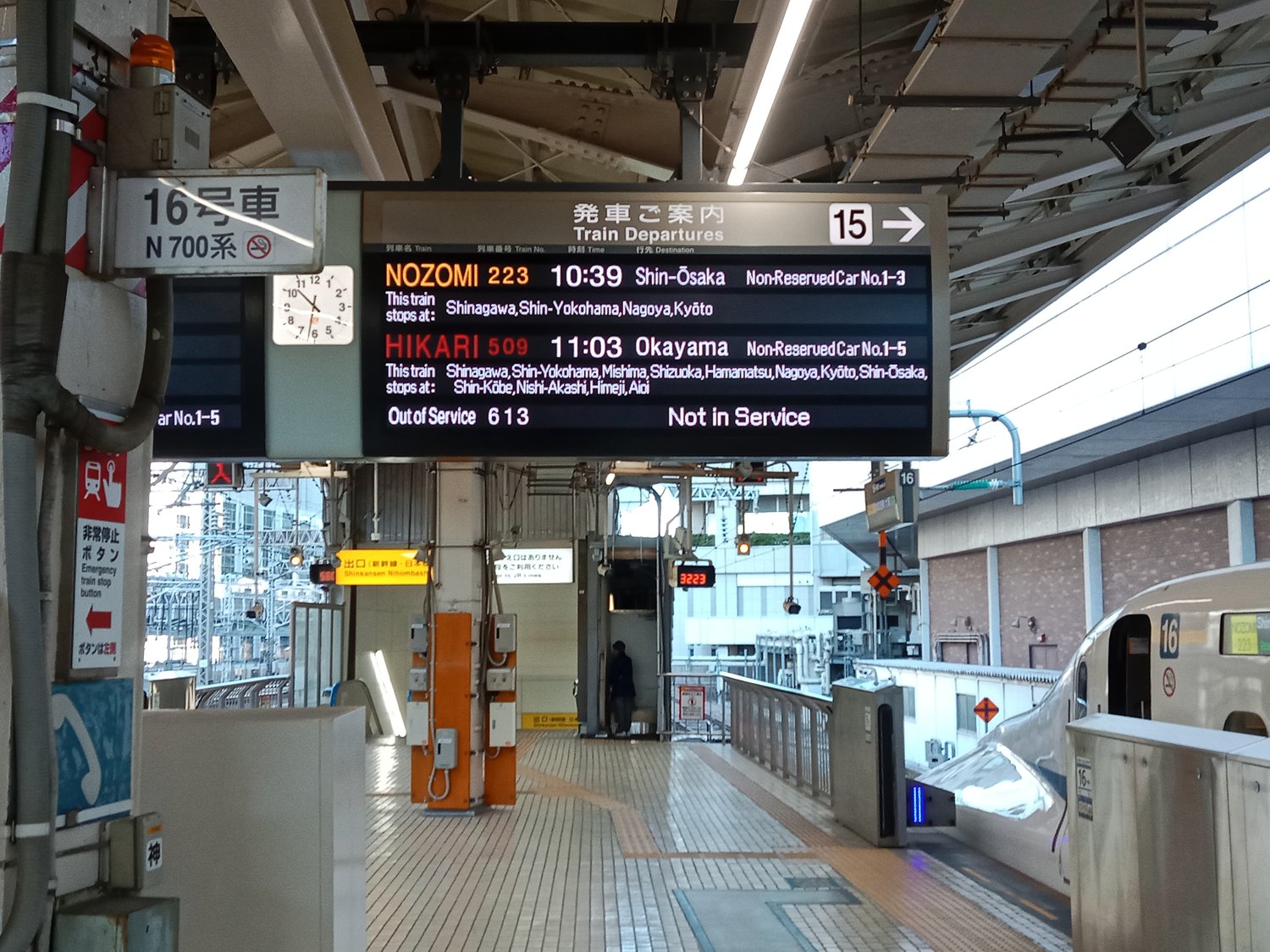
The competition hall. Contestants in the master division were seated on the stage, while those in the normal division sat in the audience area.

(From left to right) Fred, me, Jonathan, and High. Some of us had never met in person yet, so we found some time to do a bit of team practice – a.k.a. learning to read each other’s handwriting.
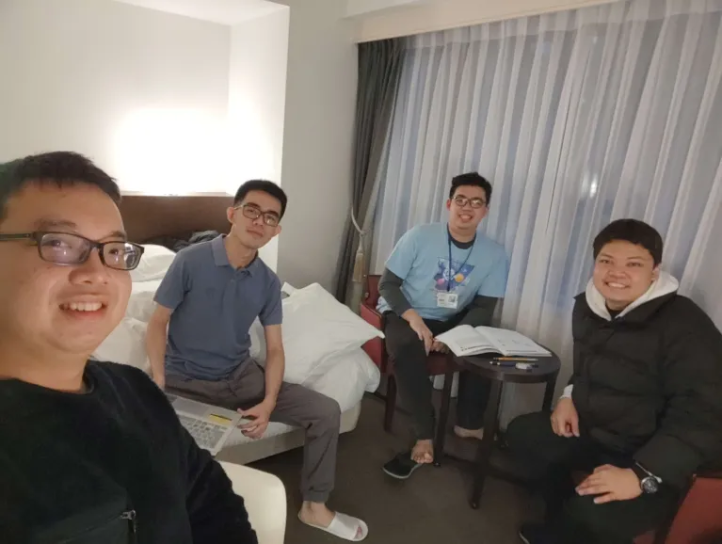
Individual Rounds
Round 1: This was a classic sudoku round with a fairly unusual point distribution. Six puzzles were worth 20 pts or less, while five were worth 50 points or more, with nothing in between. I went from back to front, starting with the 80-pointer, the 70-pointer, and two 50-pointers. With just a few minutes remaining I decided not to do the third 50-pointer, and picked up a 20-point one instead. However, I wrote one cell wrong on the 80-point puzzle, which gave me 190/400 instead of my hoped-for 270.
Round 2: I attempted to go back to front again. I managed to find a break-in for the Pencilmark, which gave me 120 points. I couldn't figure out the Coded or the Irregular, though India's Nityant Agarwal told me afterwards that the Irregular had a perfectly logical path. So I got the Quadruple (70) and the Consecutive (45), which totaled up to 235/500, still just short of 50%.
Round 3: This was without a doubt my worst round. I went straight for the hardest puzzle, the 125-point Digital. I burned half the time on this one puzzle...and it broke at the very end. I tried in vain to fix it for another 3 minutes or so, before giving up. I cleared Domino Search (105) in around 12 minutes, attempted the Letter Sudoku in my last 10, but somehow could not get it. 105/500.
Round 4: After the debacle in R3, I was a lot more hesitant to go for the highest pointer for this round, a 110-point Duplicated Killer Sudoku (Killer Sudoku, but with exactly one number duplicated in each cage). I gave it maybe 2 minutes, barely found anything, and decided not to spend any more time on it. I picked up Hidden Clones (70), Sudoku+2 (60), Kropki (40) and Double Up (35) to get 205/500. I had done Overlapping, but had some mistakes in the grid, which is a pity as the 55 points would have been quite a lot.
Round 5: All the other individual rounds had been calibrated at 10 points per minute, so this one was a little unusual with 650 points in 60 minutes. The hardest puzzle for this round was Clock [0-8] Sudoku (95), which I unfortunately broke on my first try. However, I felt I had figured out the path, and redid it correctly. Japanese Sums was not clicking for me, so I skipped it and solved Odd Labyrinth (65) and Skyscrapers (65). I skipped the Even Sandwich and did Descriptive Pairs (55), then in my last few minutes picked up Arrow (25), to get 305/650. Having to redo the Clock Sudoku really cost me a lot here.
Round 6: A relay round where certain cells from one puzzle had to be copied into the next puzzle. The N-Consecutive (170) was the biggest chunk for this round. I took an early guess on the 3rd puzzle for that relay, and it worked. Then I did the Arrow (110) smoothly, and at this point only half the time was gone, so I was optimistic about doing well. Then I promptly made a mistake on my nemesis, Outside Sudoku, and had to redo it. While I was redoing it, my seatmate Hu Yuxuan submitted, which made me think that this round was a lot easier than the others, and that I'd still end up doing pretty bad rank-wise. I eventually redid the Outside (100), then picked up Unequal (40) and Irregular (40) in my last few minutes, which gave me 460/600, by far my best performance of the entire competition, as I ranked 6th/24 for this round.
Seventy-six sudoku solvers sit silently scribbling - some swiftly, some slowly. One of the swiftest ones is my seatmate, Hu Yuxuan from China, who went on to win the championship in the master division.
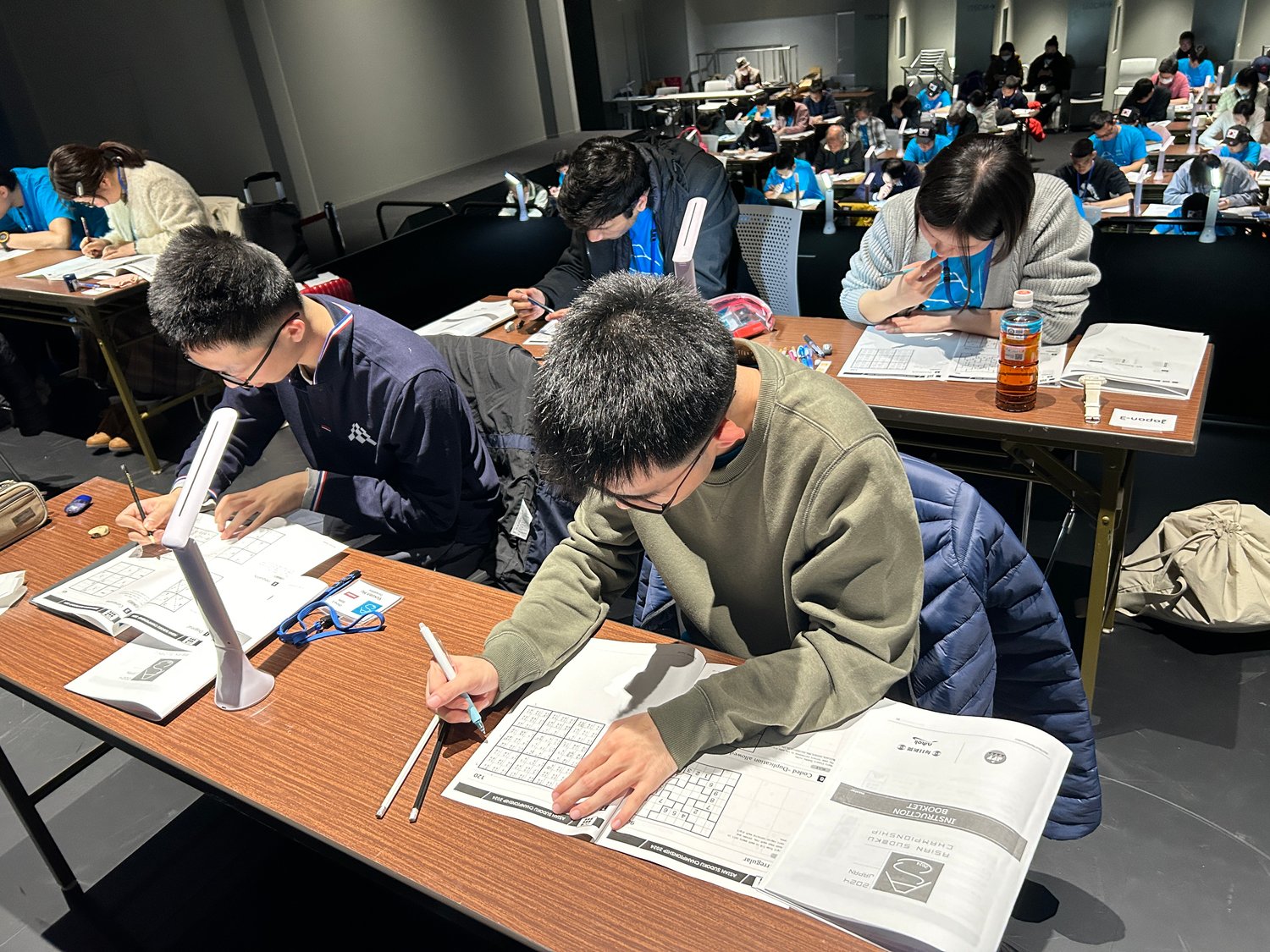
Team Rounds
(From left to right) Tun-Yi Wu of Taiwan, Gabriel Gan of Singapore, and me. Each of us was the lone representative of our country in the master division, so we teamed up to form Asia-1. This is us working on Round 8 - Mt. Fuji.
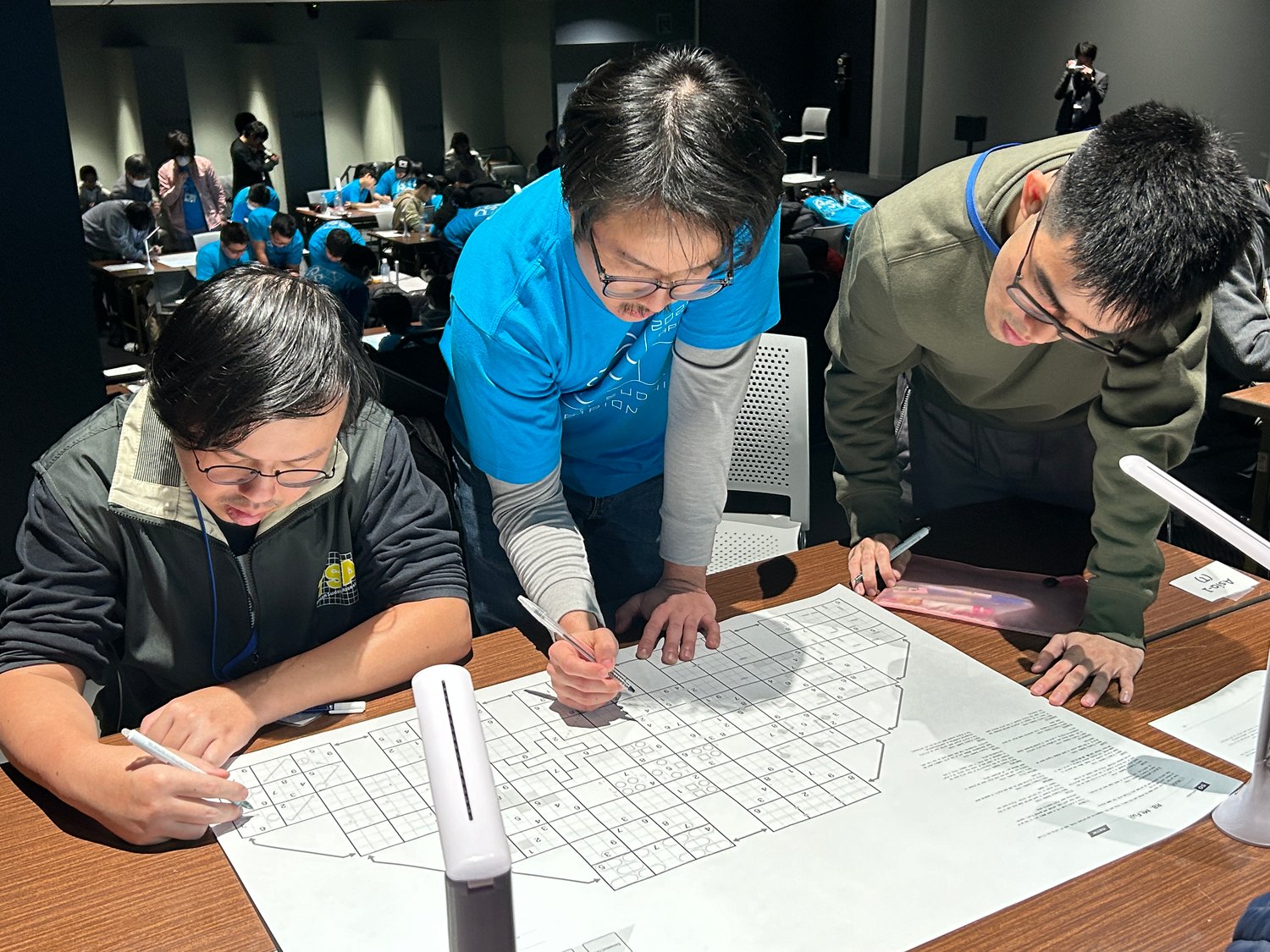
I'd never met my two teammates before, but their names are well-known to anyone who solves on Fed-sudoku, especially because they are specialists in Classic sudoku. Unfortunately, the team rounds for the master division had no classic sudoku.
Round 7: The first team round had four All Odd or Even Sudoku (each given cage either contains all odd or all even), parts of which had to be fit into a Domino Search Sudoku. This round was difficult enough that nobody finished it, though China was quite close with 800/1000 points. We managed two grids for 400 points.
Round 8: The competition was held in Shizuoka, best known for its proximity to Mount Fuji. So it was quite fitting that the final round of the competition consisted of 14 linked grids that resembled Mt. Fuji. Points are awarded for each completed grid, but the difficult thing is that some grids are not uniquely solvable on their own. We managed half of the grids to get 1050/2100, and the total scores across the two team rounds put us in 4th/7.
(From left to right) Jonathan, High and Fred with the completed puzzle in the normal division. Despite only competing as a team of three (most teams compete with four) and spending 10 minutes fixing a mistake that propagated across multiple grids, they took 5th place.
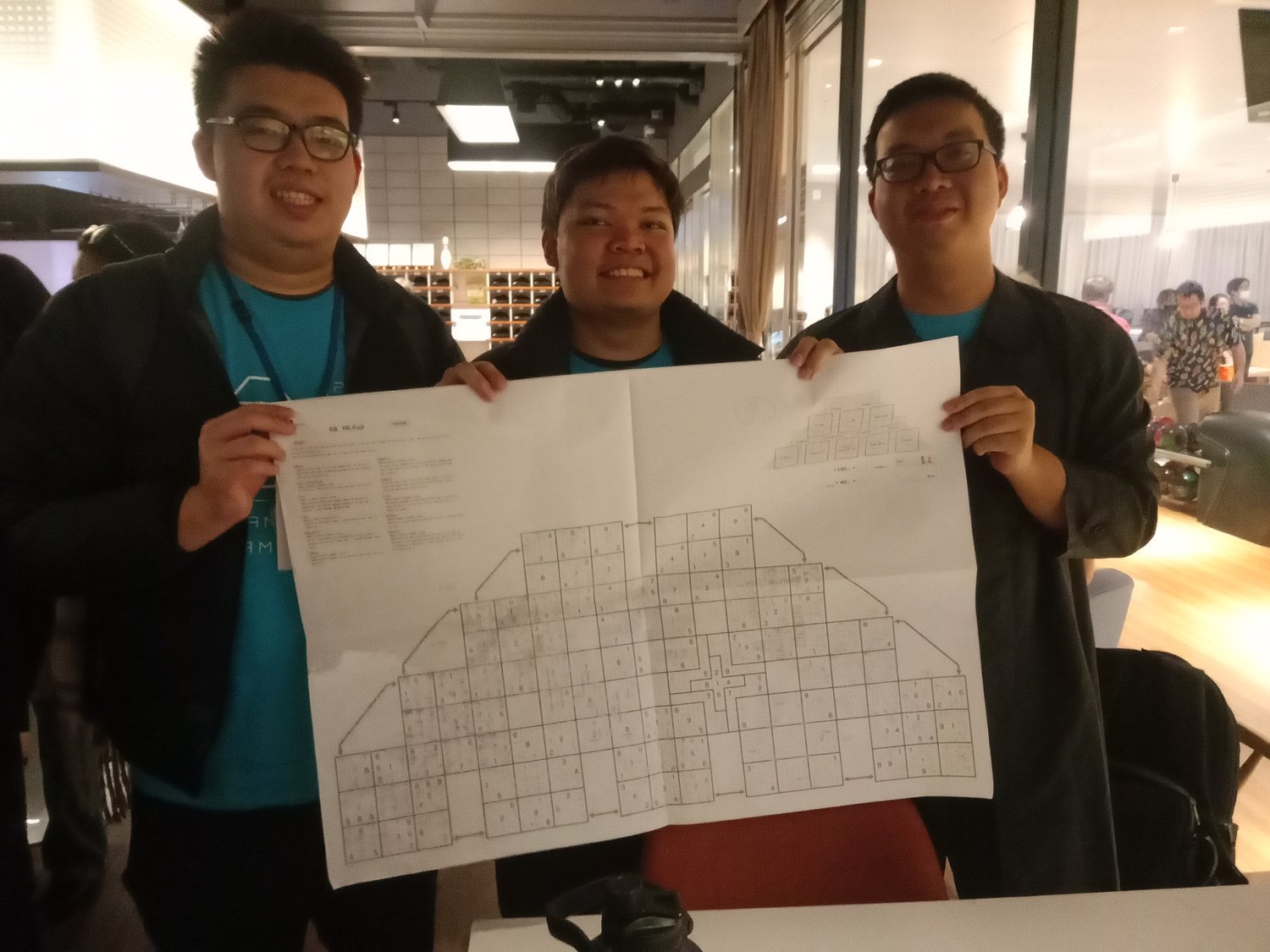
At our national championships, we don't get to keep our papers. So when our first two rounds were laid out, I checked my scores, then unthinkingly started to give the papers back.
“Protest?” asked four-time world champion Kota Morinishi, who was manning the area. I replied in the negative, wondering why he thought that, before I belatedly figured it out.
“We can keep the papers?” I asked, just to make sure. He looked at me as if wondering how I could have possibly thought otherwise, and said “Of course!”
So since we keep our papers, we knew that High was our top scorer before the awarding ceremony started, and the only question was how many solvers had outscored him. As it turned out, he got 2nd place, which is the first time someone from the Philippines has gotten a podium finish in ASC individual rounds. Jonathan and Fred ranked 7th and 9th, respectively. I ranked 12th in the master division.
High receives his award from the CEO of Nikoli, the Japanese company that popularized sudoku.
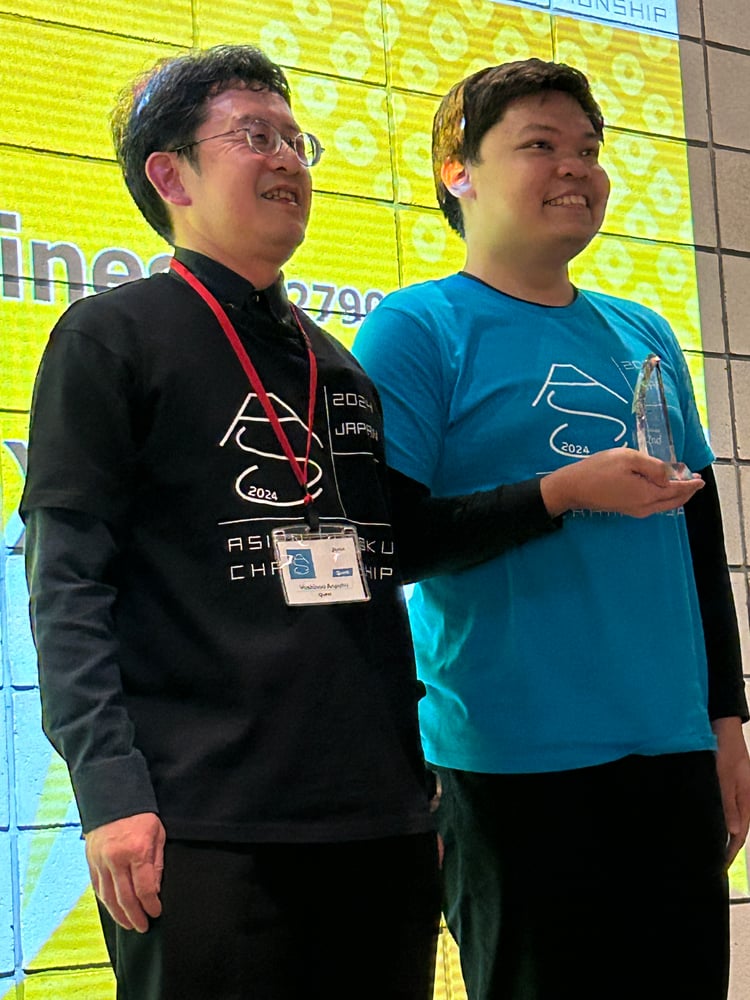
The overall winners for each division – individual awards on the left and team awards on the right.
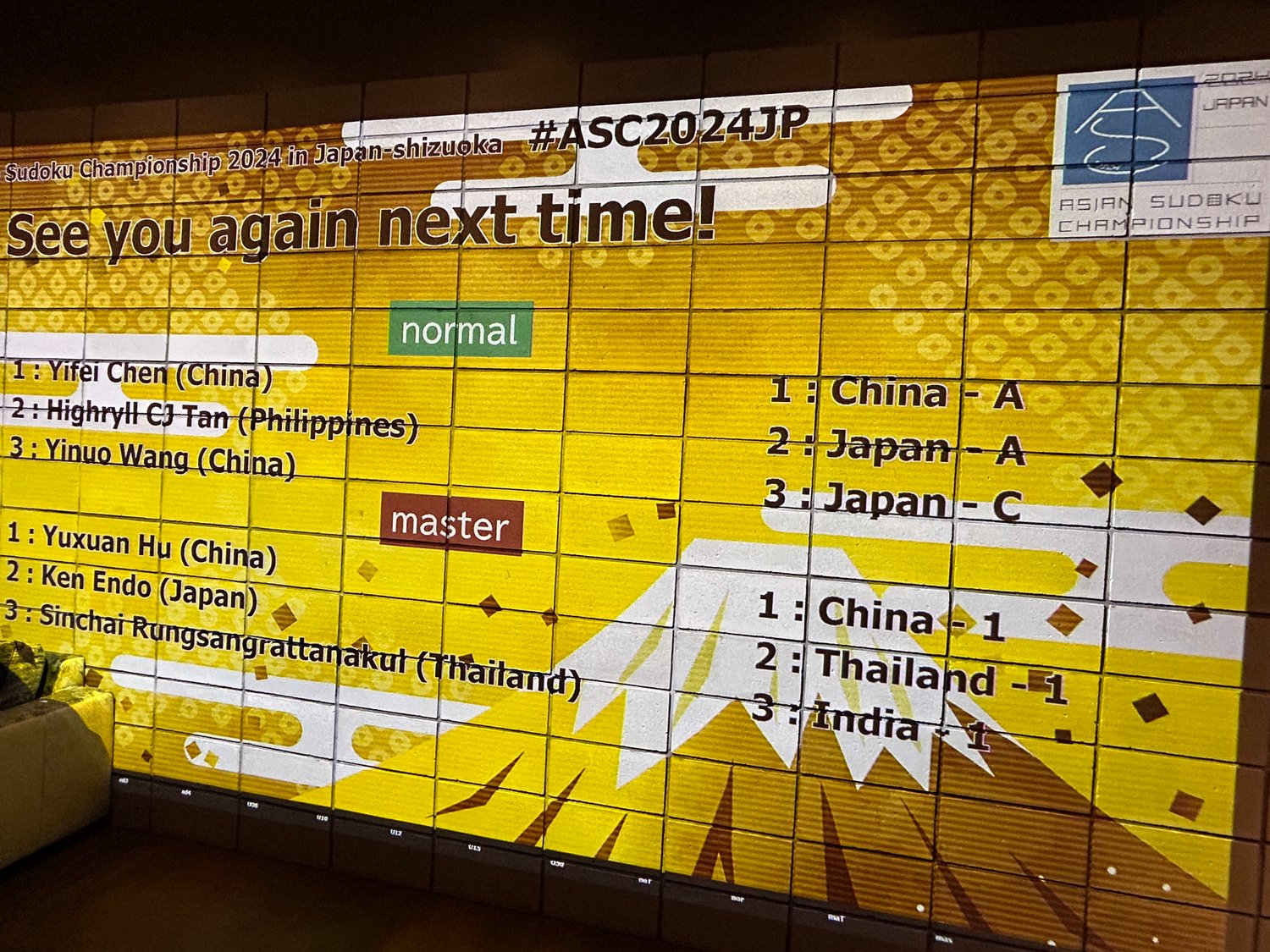
A team photo at the awarding ceremony.
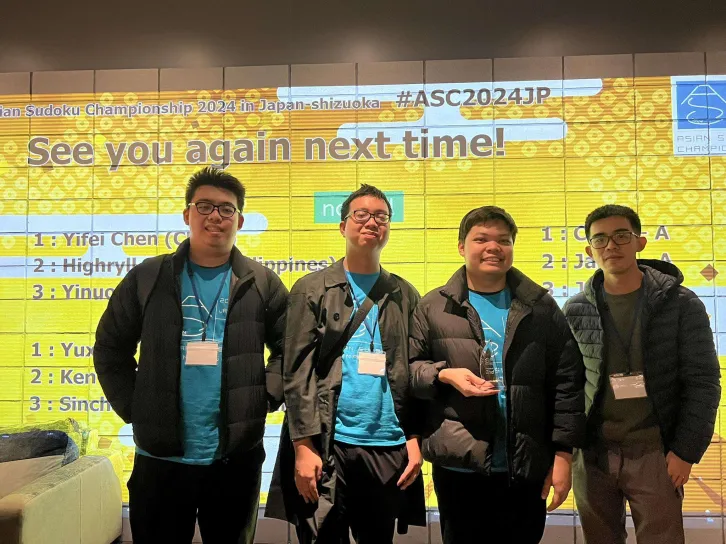
It was a very well-organized and enjoyable competition, and all of us are grateful to the Japan Puzzle Federation for this.
This October, High, Fred and I will be reuniting for the World Sudoku Championship in Beijing. Three-time national champion Candice Solidarios will also be joining us, as will Desiree Go and Matthew Co, two solvers who are joining an international sudoku competition for the first time.
I’ve also published a new sudoku book with a mix of variants and difficulties. If you're the competitive type, each puzzle in the book has been solved by someone on our WSC team, so you can compare your time against theirs.

Comments ()